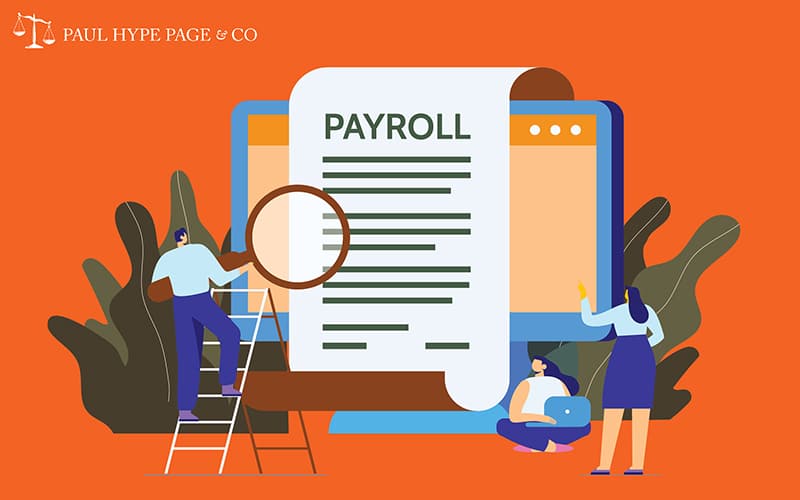Key government agencies like the Inland Revenue Authority of Singapore, the Central Provident Fund Board, the Ministry of Manpower, and GovTech developed Singapore’s innovative One-Stop Payroll initiative. Simplifying payroll processing and employment-related reporting involves the use of a single integrated platform for payroll and HR compliance submissions. OSP places the responsibility on companies to submit all payroll information just once, and the platform automatically routes it to the relevant agencies. The system reduces administration and compliance costs by minimizing the need for multiple submissions to different agencies. This simplified approach gives more time to businesses to concentrate on their core operations.
Key Takeaways
- Simplified payroll and HR compliance: The One-Stop Payroll initiative consolidates all payroll submissions to IRAS, CPFB, and MOM at one touch-point, thereby reducing administrative effort and the possibility of errors.
- Cost and Time Savings: With OSP, automation of data routing facilitates the efficiency of a business organization by saving time and operational costs related to payroll processing and regulatory compliance.
- Improved data security: The system is designed to be highly secure, given that it processes sensitive payroll and employee data. In this way, the system helps a company fulfill the prescribed standards of data protection.
- Efficiency to Payroll Providers: It will also increase payroll service provider efficiency through improved integrations with OSP, making data submission easier and ensuring a superior compliance experience for the clients.
One-Stop Payroll (OSP) Key Functionalities
The OSP system boasts a set of powerful features that will make compliance easy for businesses of any size.
- Integrated Payroll Software Compatibility: OSP integrates with payroll software, allowing firms to send payroll information directly from their software to OSP, which reduces double entry and rework.
- Automation of Data Routing: OSP automatically routes the submitted data to the relevant government agencies for reporting, such as IRAS for tax reporting, CPFB for CPF contributions, and MOM for employment-related information. Automation eliminates errors and ensures consistency across agencies.
- Platform Usability: The OSP platform is designed to keep ease for end-users in mind. The very intuitive and clear submission process makes tracking and managing compliances rather easy for businesses.
- Data Security: OSP implies strict data protection to secure payroll information that helps in achieving the standard data regulations of payroll in Singapore while maintaining the confidentiality of sensitive information.
Impact of One-Stop Payroll (OSP) on Businesses – SMEs and MNCs
With the introduction of OSP, there are a few advantages provided to companies in Singapore whether they are small-to-medium enterprises or multinational corporations.
Efficiency for SMEs
SMEs are in a sea of resource consumption due to payroll administration. OSP’s integrated submission system reduces the administrative workload of smaller teams in human resources and thus allows them to apportion their resources appropriately. Simplicity in the process reduces the risk of non-compliance, saving smaller businesses from potential fines and penalties.
Improved Compliance and Increased Economy for MNCs
The OSP system for payroll compliance is widely utilized by MNCs because it centralizes payroll compliance work. As a result, it reduces the time and effort needed to manage compliance across various levels. Furthermore, the efficiency and cost savings that OSP provides allow large organizations to meet regulatory requirements without incurring extraordinary expenses.
General Impact on Companies in Singapore
The OSP platform, for companies of all sizes, offers payroll and HR compliance more efficiently and dependably. It minimizes compliance risk by automating data submissions and ensuring that each regulating body receives all accurate information so that businesses can pursue growth and innovation. Furthermore, sound security in OSP for the data ensures sensitive employee information is handled securely.
One-Stop Payroll (OSP) Implementation Timeline
The implementation of OSP was done in phases, as listed below:
August 2024
OSP went live as a pilot project whereby a microsite showcasing the platform was introduced to a select few users. It ensured that the functionality of the platform was tested for further enhancements.
Q4 2024
Go live with TACs and other key partners; business adoption at large is expected. The platform has been engaging actively with partners and TACs to drive usage across Singapore since November 2024.
One-Stop Payroll now ushers in a quantum leap in Singapore’s business regulatory environment by offering companies an efficient, safe, and transparent way of managing payroll and HR compliance. For both SMEs and MNCs, OSP is all about simplifying processes and reducing compliance costs to enhance overall operational efficiency.
Impact on Singapore Payroll Service Providers
The OSP system is a double-edged sword for the payroll service providers of Singapore since they face more integrated and centralized compliance. How?
System Integration Needs of Payroll Service Providers
Payroll service providers will need to ensure that their systems integrate seamlessly with OSP to stay competitive and compliant. This integration requires technical adjustments and upgrades to existing payroll software. The software must include an interface that enables direct data submissions into OSP, aligned with its specific format and protocols.
Service Deliverables
Integrate with OSP to ensure ease of payroll processing according to government standards on behalf of the clients. Providers employing an OSP system ensure added value in the correct, swift submission process at the hands of the government, with compliance and risk of non-compliance reduced.
Higher Operational Effectiveness
The automated data distribution and minimum manual entry in OSP allow payroll provision processes to function more efficiently. A smoothed system at one end allows it to decide how to put the resources elsewhere on other client services or provide more HR solutions as an extension of the services portfolio.
Competitive Differentiation
Note that adopting OSP early and smoothly gives providers a competitive edge. MNCs and SMEs operating in Singapore will prefer providers fully integrated with OSP, as it offers them compliant and easier payroll management. Early adopters can expect stronger customer loyalty and attract a significant number of businesses seeking compliant and efficient payroll services.
In summary, OSP is designed to enhance and not burden payroll service providers to upgrade their systems to optimize operations and produce better levels of compliance and efficiency. Instead of causing complications, OSP provides payroll providers with smoothed tools to serve customers better. Service providers like Paul Hype Page who embrace these enhancements will be far better equipped. They will be prepared to meet the changing needs of Singapore businesses with ease and confidence.

FAQs
OSP is an integrated platform developed by Singapore’s IRAS, CPFB, MOM, and GovTech to streamline payroll submissions and compliance. It allows businesses to submit payroll information once through a single platform, which then routes data to each relevant government agency.
The primary adjustment is that your payroll submissions will now be made through OSP. If your payroll provider is OSP-compliant, this transition should be seamless, with minimal changes on your end.
No, OSP is designed to enhance rather than disrupt payroll services. It will help providers improve efficiency, accuracy, and compliance, ultimately benefiting you as a client.
OSP reduces the time and cost associated with payroll compliance by consolidating submissions to multiple agencies into one platform. This approach helps businesses focus on their core operations without the administrative burden of handling separate submissions.
Yes, OSP employs strict data protection measures, including encryption, to safeguard sensitive payroll information. The platform is designed to comply with Singapore’s data protection regulations, ensuring your data remains secure.
Most payroll providers are working to ensure that their systems are compatible with OSP. If your provider is integrated with OSP, your software will continue to operate as usual, with submissions going directly through the new platform.
OSP had a soft launch in August 2024, with an official launch underway in the fourth quarter of 2024. As the platform is rolled out, more businesses will be onboarded to ensure a smooth transition.
Absolutely. OSP is particularly beneficial for SMEs, as it reduces administrative workload, minimizes the risk of non-compliance, and lowers costs associated with payroll management.
Yes, Paul Hype Page offers payroll services fully aligned with OSP requirements, ensuring our clients experience a smooth and compliant payroll process.
You can check with your payroll provider directly, or look for announcements regarding their OSP compliance. Providers that integrate with OSP will typically highlight this feature to assure clients of seamless payroll processing.
About The Author
Share This Story, Choose Your Platform!
Related Business Articles





